Are you navigating the complexities of legal document submissions and feeling overwhelmed? You're not aloneâmany people find the process daunting, especially when it comes to ensuring proper authorization. A well-crafted letter can make all the difference, streamlining your submissions and clarifying your intent. Join us as we explore the essentials of crafting an effective letter template for legal document submission authorizationâread on for tips and examples!
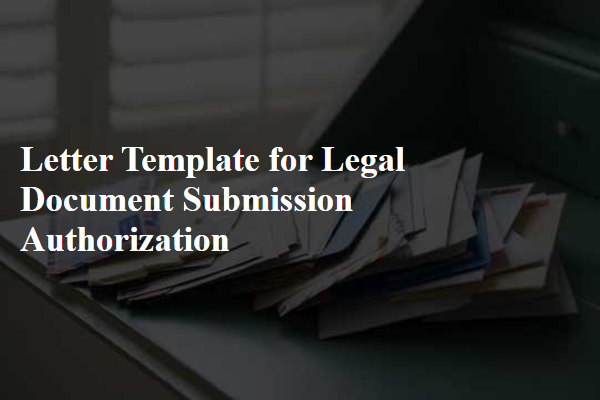
Clear identification of parties involved
In a legal context, clear identification of parties involved in a document submission authorization is critical. The entities may include individuals, organizations, or governmental bodies. Essential details include full legal names, addresses, and any pertinent identification numbers, like Social Security Numbers or Tax Identification Numbers for individuals, and Employer Identification Numbers for businesses. In legal documents, it is also important to specify roles such as 'Affiant,' 'Agent,' or 'Principal,' which clarify each party's responsibilities. For instance, the 'Principal Party,' which may refer to John Doe residing at 123 Main St, Cityville, State, can be identified against the 'Authorized Agent,' Jane Smith, representing XYZ Corporation located at 456 Corporate Lane, Business City, State. This precise identification of each party helps in establishing accountability and facilitating communication within the legal framework.
Specific authorization details
A legal document submission authorization grants permission for an individual or organization to submit specific documents, such as court filings or contracts, on behalf of another party. This authorization typically includes details such as the names of the parties involved, the specific documents to be submitted--like invoices or claims--and any relevant case or project numbers that identify the matter. Additionally, the authorization should specify the dates during which this permission is valid, ensuring compliance with legal timelines. It's critical for the authorization to be signed and dated by the principal party, often requiring notarization for added validity, especially in jurisdictions like California or New York where legal formalities are stringent. This process helps establish genuine representation and prevents unauthorized submissions that could disrupt legal proceedings.
Duration of authorization validity
The duration of authorization validity for legal document submission typically varies based on the specific context and requirements of the legal framework involved. For example, in corporate settings, the authorization may remain valid for a fixed term, such as one year, from the date of issuance, unless revoked earlier in writing. In real estate transactions, the period can depend on the closing date, which might require a validity of 30 to 90 days. For notarized documents, the validity is often indefinite unless a specific time frame is stated within the document itself. It is crucial that all parties involved are aware of the exact duration to ensure compliance with relevant legal procedures and prevent any lapses in authorization that could affect the legitimacy of the submitted documents.
Contact information for clarity
Submitting legal documents requires precise authorization procedures. Complete name of the individual (e.g., John Doe), with identification details such as a driver's license number (e.g., D1234567), establishes identity. The address, including street name (e.g., Maple Street), city (e.g., Springfield), and zip code (e.g., 12345), ensures accurate delivery and identification of submitting party. Contact information encompasses both mobile number (e.g., (123) 456-7890) and email address (e.g., john.doe@example.com) for swift communication. Specific details about the legal documents being submitted, including case number (e.g., 56789) and document type (e.g., complaint, motion), should also be clear. Authorization signature and date of signature (e.g., October 1, 2023) confirm the legitimacy of submission.
Legal and professional language
A comprehensive legal document submission authorization outlines the authority granted to an individual or entity to submit legal documents on behalf of another party. This authorization specifies details such as the name of the person granting the authority, the name of the authorized individual or representative, and the specific legal documents involved, which can include contracts, pleadings, or declarations. The document typically requires a signature from the granting party, along with the date of authorization, ensuring that the authorization is formal and legally binding. It may also reference applicable laws or regulations that govern such authorizations to further validate the process. A notary public's acknowledgment may be included to enhance the document's credibility and enforceability in legal proceedings.

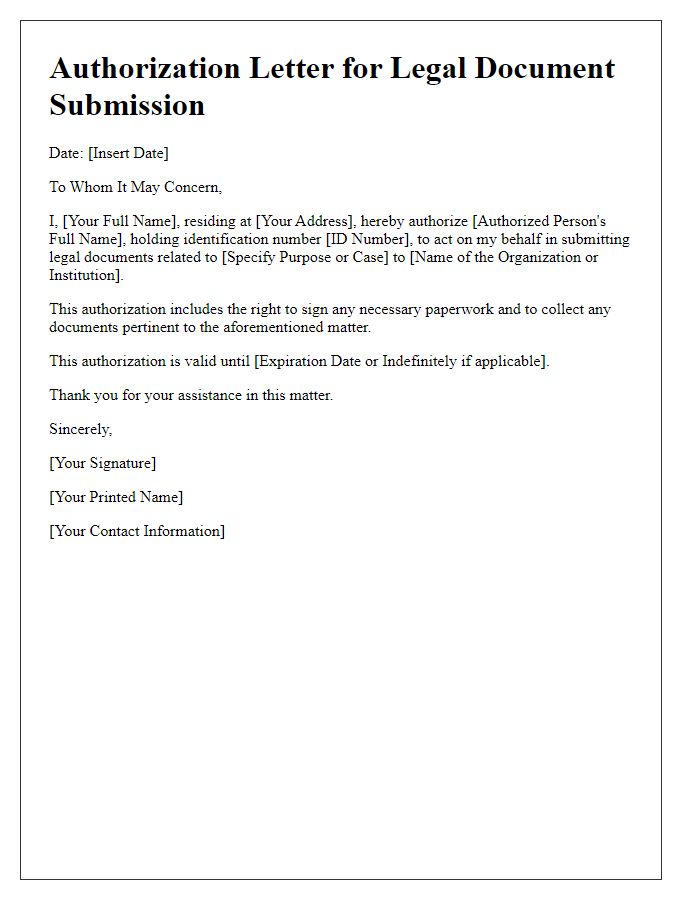
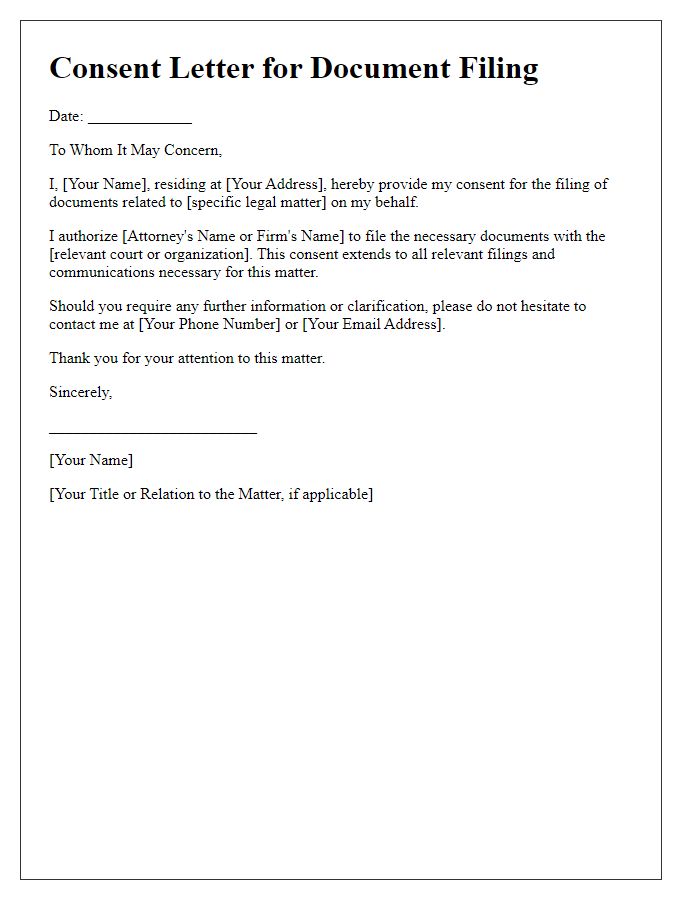
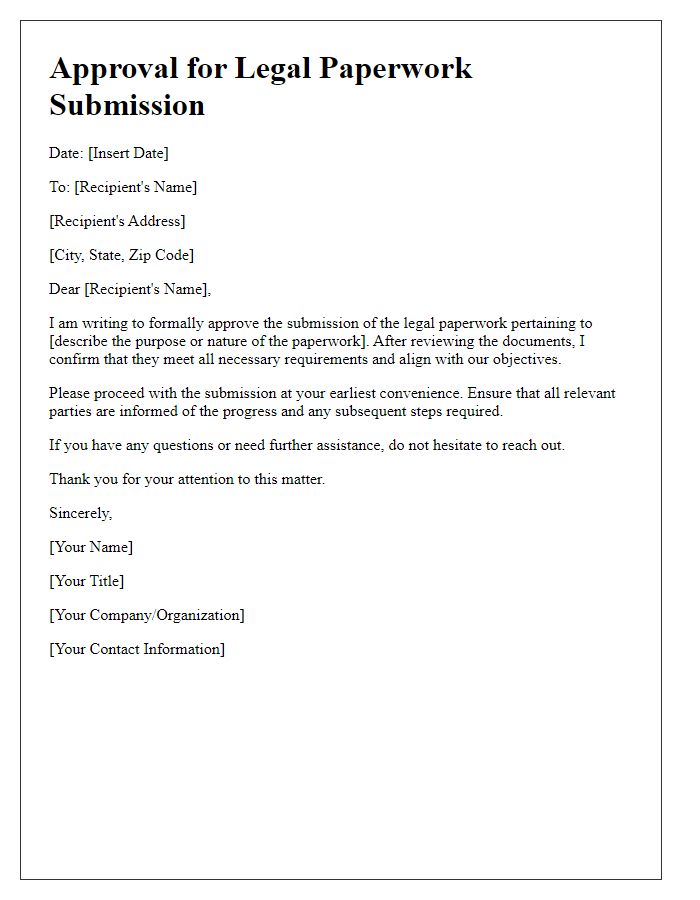
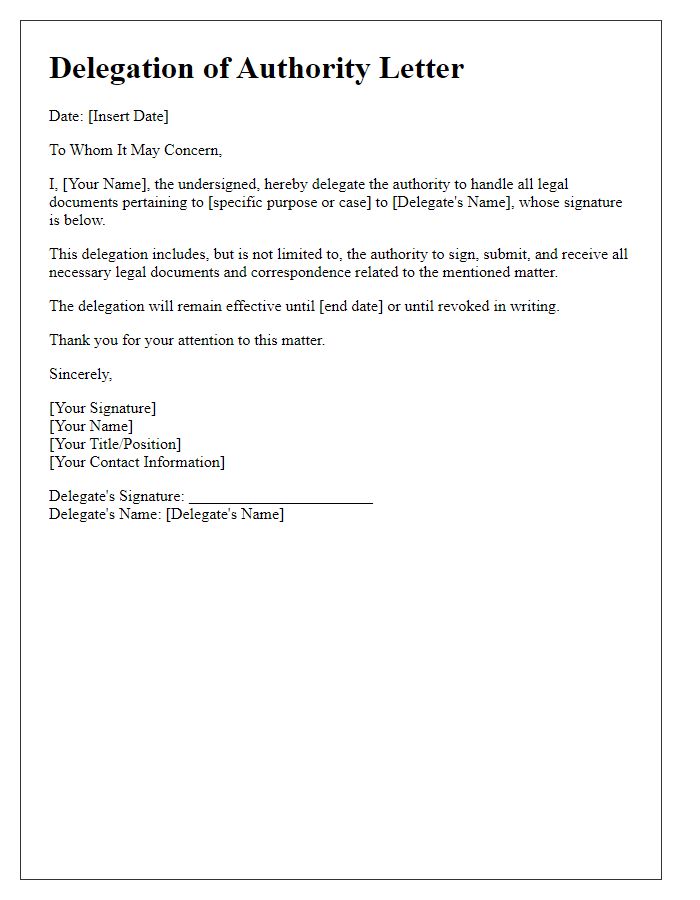
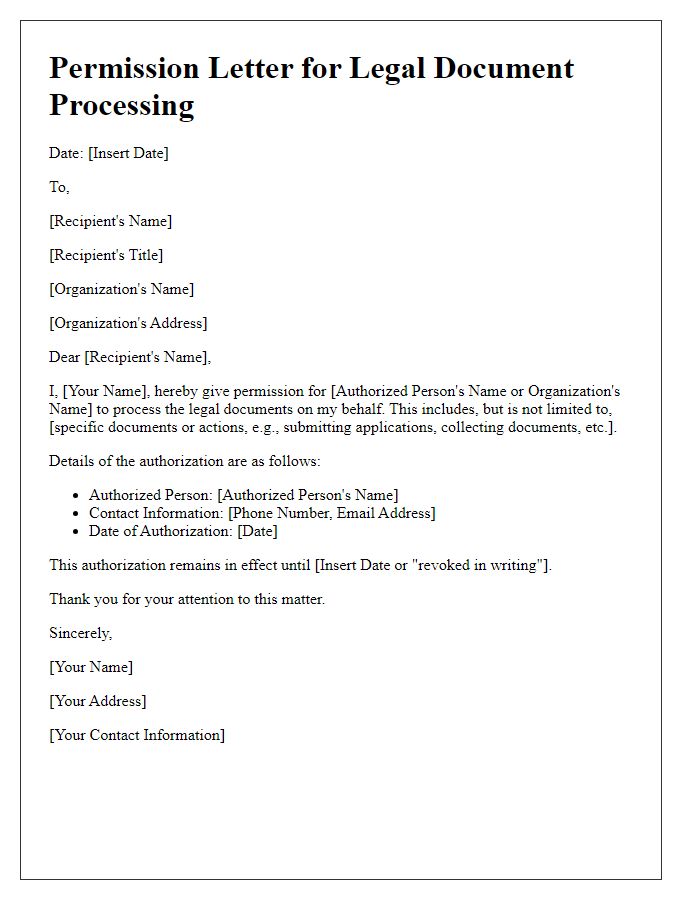
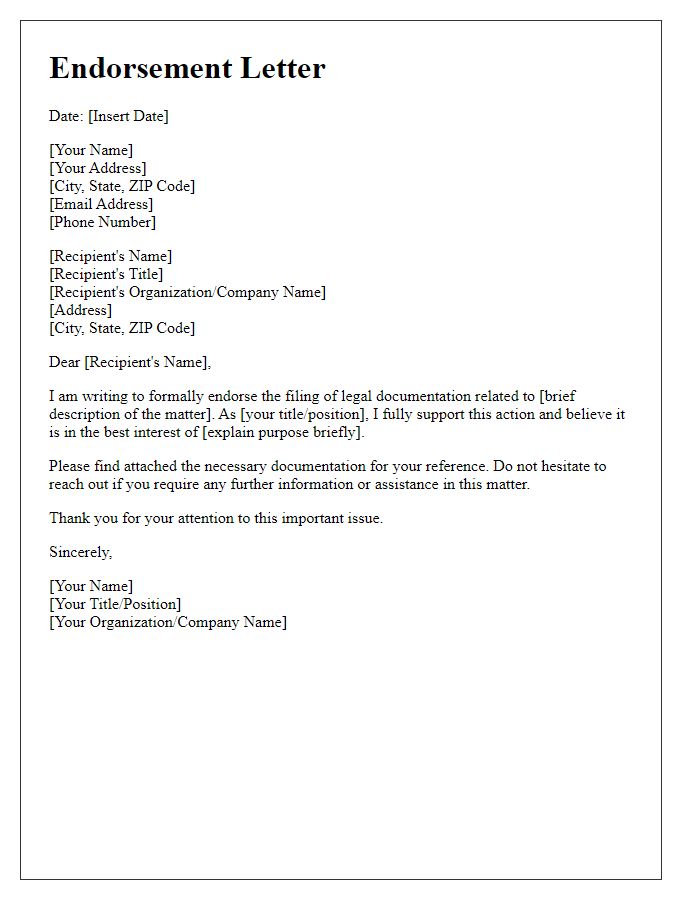
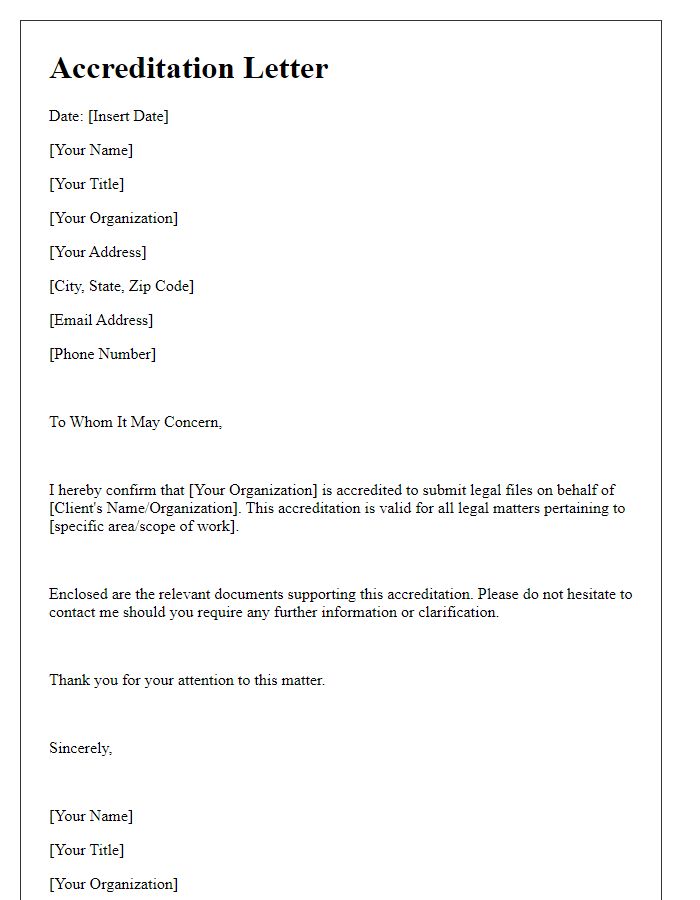
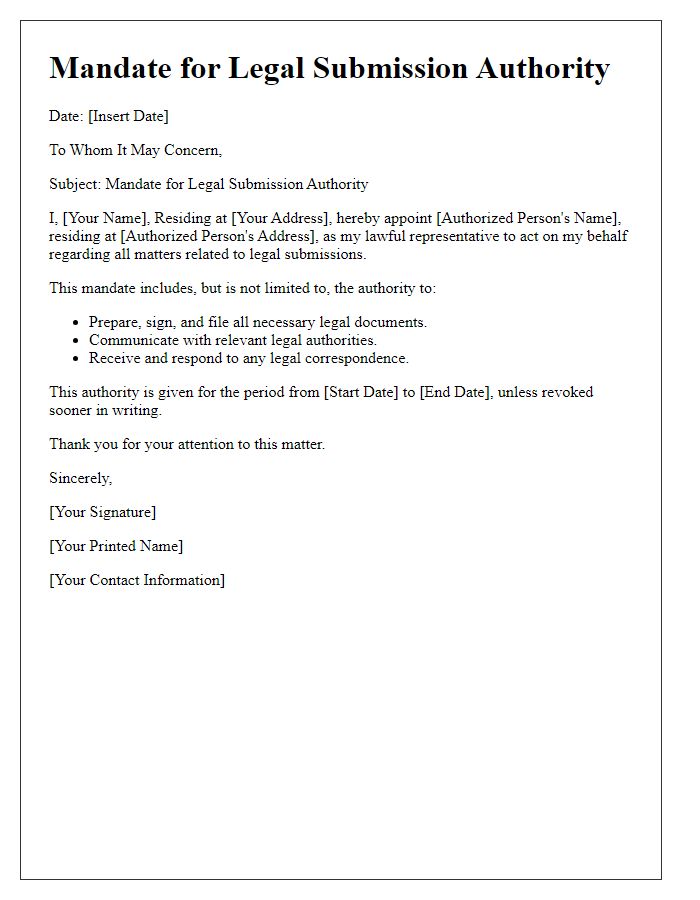
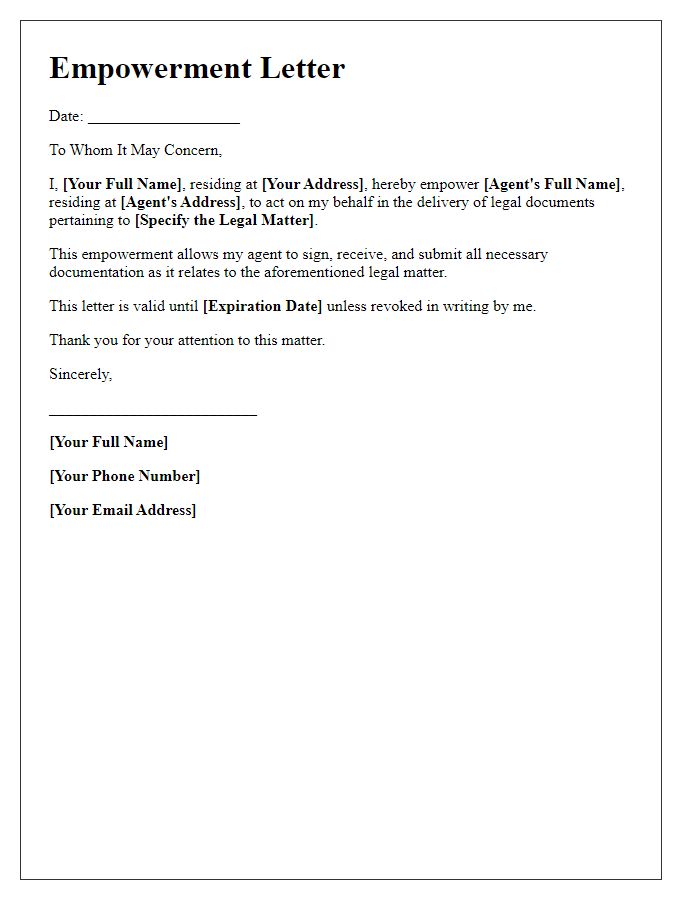
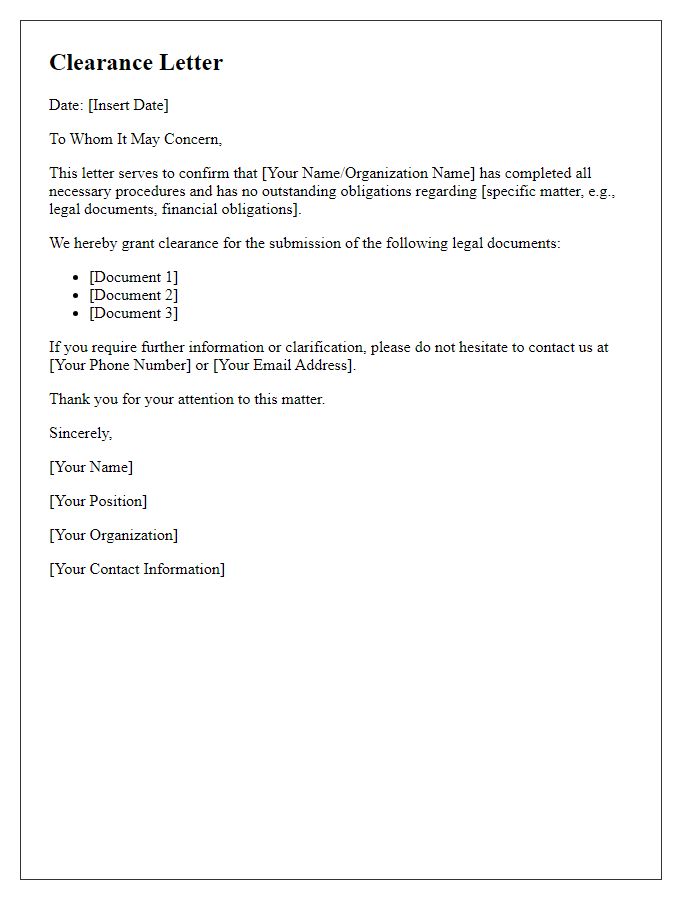

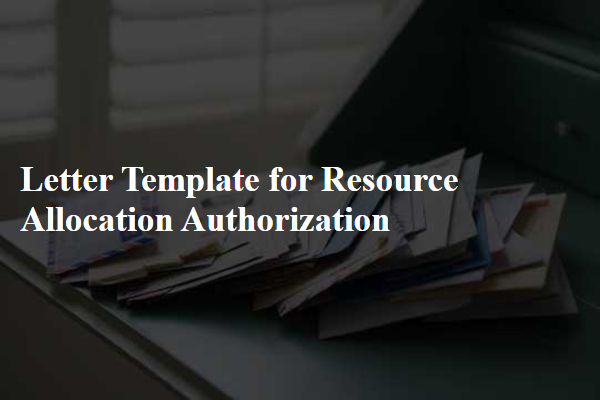
Comments